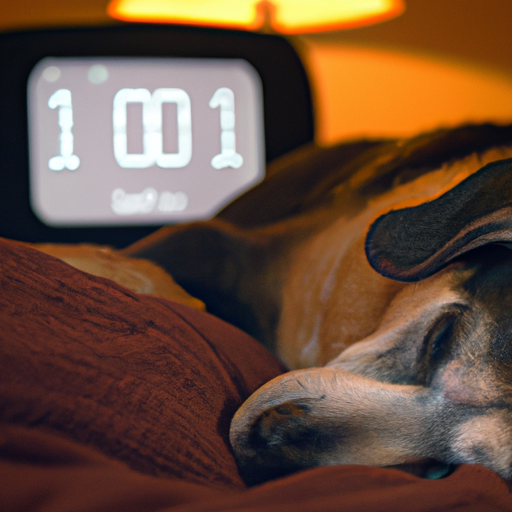“`markdown
How Many Hours Do Senior Dogs Sleep
As a caregiver, it’s essential to understand your senior dog’s sleep habits. A significant shift in sleep patterns can often be a sign of underlying health issues. But, how many hours do senior dogs really sleep? Let’s dive into the details.
Understanding Your Senior Dog’s Sleep Needs
Like humans, dogs’ sleep needs vary with age. Puppies need a lot of sleep, almost 18 to 20 hours a day. Adult dogs, on the other hand, sleep around 12 to 14 hours. But, as they grow old, their sleep requirements increase.
As a general rule:
- Puppies: 18-20 hours
- Adult Dogs: 12-14 hours
- Senior Dogs: up to 18 hours
However, this is just a guideline. The exact number can vary depending on several factors, including breed, size, and health condition.
Factors Affecting Your Senior Dog’s Sleep
There are several reasons why your senior dog might be sleeping more. These include:
-
Health issues: Chronic conditions like arthritis, diabetes, and heart disease can make your dog tired, leading to more sleep.
-
Lack of exercise: Senior dogs may not be as active as they used to be. Lack of physical activity can lead to longer sleep hours.
-
Medication side effects: Some medications can cause drowsiness in dogs.
-
Changes in diet: Dietary changes can impact your dog’s energy levels, affecting their sleep.
How to Monitor Your Senior Dog’s Sleep
Monitoring your dog’s sleep patterns can give you vital clues about their health. Here are some steps to follow:
-
Record their sleep hours: Keep a daily log of when your dog sleeps and wakes up.
-
Observe their sleep quality: Does your dog look rested after waking up? Or do they seem tired or disoriented?
-
Note any changes in behavior: Changes in appetite, bathroom habits, or mood can indicate health issues.
What to Do If Your Senior Dog Is Sleeping Too Much or Too Little
If you notice a sudden change in your dog’s sleep pattern, it’s a good idea to consult a vet. They can help identify any underlying health issues and recommend appropriate treatment.
Also, consider the following tips:
-
Make sure your dog gets regular exercise. A short walk or playtime can help improve their sleep.
-
Feed them a balanced diet. Good nutrition can enhance your dog’s energy levels and sleep quality.
-
Create a comfortable sleeping environment. Use a soft bed and keep the room temperature moderate.
FAQs
Q: How many hours should a senior dog sleep?
A: On average, a senior dog can sleep up to 18 hours a day. However, this can vary depending on factors like breed, health, and lifestyle.
Q: Is it normal for my senior dog to sleep all day?
A: Yes, it can be normal for senior dogs to sleep more. But if you notice a sudden change or other worrying symptoms, consult a vet.
Q: Can a change in diet affect my senior dog’s sleep?
A: Yes, dietary changes can impact your dog’s energy levels and sleep patterns. A balanced diet is essential for your dog’s overall health.
Q: What can I do if my senior dog is having trouble sleeping?
A: If your dog is having sleep issues, consider factors like their sleeping environment, exercise, and diet. If the problem persists, consult a vet.
Remember, your senior dog’s increased sleep is a natural part of aging. But, as a caregiver, it’s essential to stay alert to any sudden changes or worrying symptoms. When in doubt, always consult a vet.
“`



